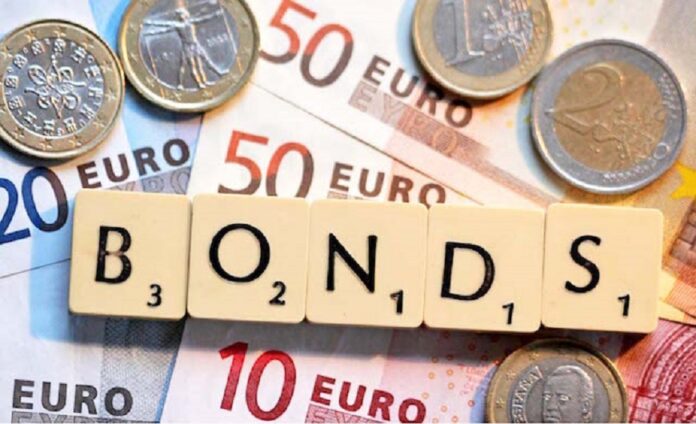Kenya’s National Treasury says it’s not keen on buying back part of the $2 billion Eurobond that matures in June 2024 citing investors’ ‘strong’ confidence in government’s fiscal policy stance.
“Buy back is one of the strategies for 2024 but doubt whether investors are willing to sell before maturity of the bonds,” Treasury Director of Debt Management Haron Sirma, said.
“It reflects strong investor confidence on government fiscal policy stance. You can’t force investors to sell.”
This means the government could fork out about Ksh19.66 billion ($135.6 million) in interest payment on the bond this fiscal year, going by the current exchange rate of Ksh145 per US Dollar.
The 10-year bond priced at 6.78 percent was issued in 2014 to fund infrastructure projects under the then Jubilee administration.
Kenya took up $2.75 billion in two tranches – a 10-year paper at 6.78 percent interest rate and and a five-year issuance at 5.87 percent.
The five-year paper was repaid partly using the proceeds of another $2.1 billion Eurobond issued in May 2019.
In June, President William Ruto announced at the New Global Financing Pact in Paris that the government planned to buy back at least 50 percent of its $2 billion Eurobond that is maturing in June 2024 before the end of this year.
Investors were concerned that the government doesn’t have enough money to settle the payment due to competing priorities and a drop in its foreign-exchange reserves.
The foreign exchange reserves declined to $7.08 billion (3.83 months of import cover) as of August 31 against the Central bank’s statutory requirement of at least four months of import cover.
A cross-section of economists, however, felt that the President’s announcement of a debt buyback on a global stage could spur a rally in the bond price and make it very expensive for the government to execute its plan.
“I think it was announced in the premature manner in the sense that this is a positive announcement and it is being announced at an international stage by none other than the President himself. So what happens is you expect that the bond prices in a good way will start reacting positively,” Churchill Ogutu, an economist at IC Asset managers, said in interview with CNBCAfrica in June.
“So, we could expect some rally on that positive news and that might in a way make it a bit expensive for the government authorities to execute that plan.”
The yield on the bond ($2 billion, 10-year Eurobond) increased by 1.02 percentage points to 13.97 percent during the week ending August 31 from 12.95 percent during the week ending August 24
In August Moody’s Investors Services said it may treat a planned buyback of some of the Kenya’s debt as a default.
Moody’s vice president and senior credit officer David Rogovic, in response to Bloomberg’s enquiry, said that redeeming the bonds at a price below the par value would constitute an economic loss to investors.
“We deem a distressed exchange occurs when there are economic losses to creditors and when the transaction has the effect of allowing the issuer to avoid a likely eventual default,” Rogovic said.
“We need to see the details and the terms of the buyback before we can assess whether it constitutes a distressed exchange, and therefore a default.”
Concerns about Kenya’s ability to repay the 2024 bonds were cited by Fitch ratings in July when it revised the outlook on the country’s debt to negative while affirming its credit rating at B, or highly speculative.
Kenya is seeking to mobilise resources to fund a Ksh3.6 trillion ($24.82 billion) budget for the current fiscal year, plagued by a gaping hole of Ksh718 billion ($4.95 billion). About 50 percent of the revenue collections goes towards debt repayment.
Fitch noted that Kenya’s sovereign external debt service will rise sharply to $4.3 billion in the current fiscal year, including the $2 billion Eurobond repayment due in June 2024, up from $2.8 billion in 2022/2023.
In April Kenya announced plans to raise up to $2 billion from the international capital markets to pay off the debt.
“Government has to borrow to finance maturing international debt as well as domestic debt to avoid default. Commercial debt might be stop gap measure to give time to negotiate for bilateral or concessional funding,” Reginald Kadzutu, CEO Amana Capital Ltd told The EastAfrican in an earlier interview.




